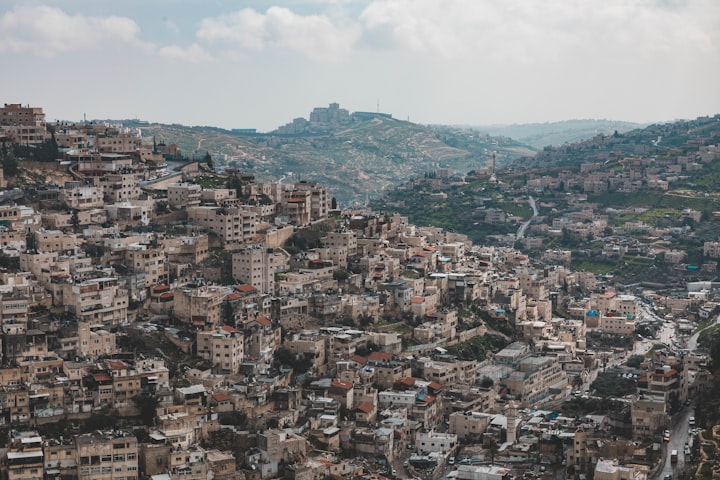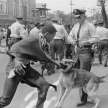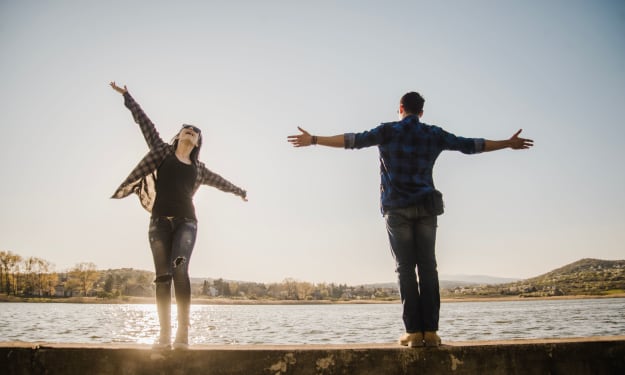
People in the U.S. have taken to the streets to express their support for pro-Palestinian causes. This includes advocating against Israel’s occupation of the West Bank and the U.S.-Israel alliance. The 11-day conflict between Israel and Hamas last month, the worst in the region since 2014, resulted in at least 256 deaths in Gaza, according to the United Nations, and 13 deaths in Israel, as reported by Israel’s Ministry of Foreign Affairs.
This recent violence has reignited a sense of solidarity between some BLM organizers and the pro-Palestinian movement, reflecting a growing sympathy among the broader African American community for the Palestinian cause. This connection between the two movements has its roots in a complex history of division among earlier generations of African American activists. This division helped shape what Zellie Thomas, an organizer with Black Lives Matter in Paterson, N.J., describes as a “Black radical tradition.” Thomas leads a local chapter of the decentralized Black Lives Matter movement and points to prior advocacy for Palestinian rights by figures such as the Black Panther Party and Angela Davis. Moreover, Malcolm X was among the first to express support for the “Arab cause”, in the 1950s. This began during his time with the Nation of Islam, when he sometimes promoted anti-Semitic conspiracy theories.
Malcolm X stated during a 1958 press conference that people of color in the U.S. would be sympathetic to the Arab cause, but their understanding of the true problems in the Middle East was limited. He even visited Gaza and Palestinian refugee camps before his assassination in 1965, setting the stage for a more divisive stance within the African American community after the 1967 Arab-Israeli war. This conflict ended with Israel defeating Egypt, Jordan, and Syria and taking control of the West Bank, Gaza, and other territories. This marked the beginning of Israel’s ongoing occupation of the West Bank and a significant public rift among African American activists, some of whom supported the Zionist movement and the establishment of Israel as a homeland for Jews, including Holocaust survivors.
According to Robin D. G. Kelley, a historian at the University of California, Los Angeles, who studies social movements, black leaders generally welcomed Israel’s founding in 1948, viewing European Jews as oppressed and dispossessed people who had survived near extermination.
However, after the 1967 war, a shift in perspective became apparent. The conflict reshaped the narrative, with many Black Power activists seeing Israel as a Western-sponsored colonial state that had dispossessed people of color. In 1967, the Student Nonviolent Coordinating Committee (SNCC), a significant civil rights organization, published a controversial article that described Israel as an “illegal state” and Palestinian refugees as “victims of Zionist, British, and U.S. aggression." This marked a shift in the perception of the Middle East conflict among Black Power activists, who began to view it as part of the global struggle against colonialism and imperialism. The article was criticized for its rhetoric and imagery, which included a dollar sign inside the Star of David, evoking anti-Semitic tropes.
However, the newsletter’s editor argued that it symbolized the close relationship between the U.S. and Israel, a relationship that Black Power activists believed made the U.S. government a common enemy for both African Americans and Palestinians. This period is seen as laying the foundation for the current discourse that criticizes Israel or Zionism as inherently anti-Semitic. Some civil rights leaders, such as A. Philip Randolph and Bayard Rustin, distanced themselves from SNCC and established an organization called the Black Americans to Support Israel Committee.
This was partly to counter statements against Israel and had the support of many Jews in the U.S. Other prominent civil rights figures, including John Lewis, Jackie Robinson, Roy Wilkins of the NAACP, and Whitney Young of the National Urban League, signed on to support Israel’s right to exist, drawing parallels between their struggle for freedom and equality in America and the struggle of Jews. They argued that only peace and economic development could bring real justice to the Arab people. However, some black activists were growing frustrated with the gradual progress of the civil rights movement during this time. SNCC’s public criticism of Israel in 1967 coincided with a period of unrest in U.S. cities, referred to as the “long, hot summer.” This was a time when black identification with Zionism as a quest for land and self-determination began to shift towards a radical critique of Zionism. In the years that followed, support for Israel remained strong among many black Americans, with solidarity with Palestine representing a minority viewpoint. Yet, in recent years, organizers have been working to rebuild momentum. Delegations of black activists, including historian Robin D. G. Kelley, visited the West Bank to witness the living conditions of Palestinians.
Social media played a role in strengthening the connection between African American and Palestinian solidarity, particularly during the 2014 protests in Ferguson, Missouri, and the conflict between Israel and Gaza. In recent years, the struggle for justice has transcended national and racial boundaries, highlighting the interconnectedness of various forms of oppression. The global nature of these movements has been made evident by the Black Lives Matter activists who took to the streets in solidarity with the pro-Palestinian cause. Their actions reflect a growing trend of international activism that seeks to address systemic inequalities and injustice wherever they may be found. The fight against racial discrimination, police brutality, and social inequality has become increasingly entwined with broader calls for human rights, whether in Palestine or other regions facing similar challenges. As we reflect on this evolving landscape of activism, it’s important to recognize that the complexities of the Israeli-Palestinian conflict and its historical backdrop are far from monolithic. Diverse perspectives exist within the African American community, just as they do within broader American society. It is in this diversity of thought and expression that the heart of democratic dialogue thrives. The conversation is essential, offering space for a range of opinions and allowing for the exploration of nuanced and multifaceted solutions to these global issues. In conclusion, the solidarity between Black Lives Matter activists and the pro-Palestinian movement serves as a testament to the power of collective voices. As conversations surrounding social justice continue to expand and intersect, they provide a platform for understanding, empathy, and progress. Whether these dialogues lead to policy change or shifts in public perception, they remind us of the transformative potential inherent in activism, unity, and the pursuit of justice for all.
About the Creator
Greg B.
Black Man. Writer.
Now abideth faith, hope, charity, these three; but the greatest of these is charity.”
“I sit with Shakespeare and he winced not.”






Comments (1)
Interesting & informative!!!